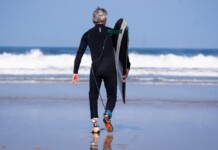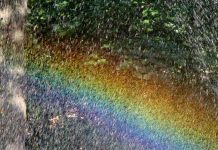
Dyslexia has affected some of history’s greatest minds—including Leonardo da Vinci, Albert Einstein, Pablo Picasso, and Sir Stephen Hawking.
The list also includes billionaire entrepreneurs—like Sir Richard Branson and Steve Jobs—who’ve built some of the world’s top companies, like Virgin and Apple.
Now scientists have discovered that people with dyslexia have special skills. They are better at solving problems and adapting to challenges.
Such skills enabled our species to survive, and could hold the key to tackling climate change.
Those with dyslexia (a common learning disability) actually specialize in exploring the unknown.
The findings published in the journal Frontiers in Psychology have implications both at the individual and societal level.
“The deficit-centered view of dyslexia isn’t telling the whole story,” said lead author Dr. Helen Taylor, of the University of Cambridge. “This research proposes a new framework to help us better understand the cognitive strengths of people with dyslexia.”
CHECK OUT: This Font is Designed Specifically For Dyslexia – and it Really Works
It is estimated that one-in-five have the condition. It mainly causes problems with reading, writing and spelling.
Other Celebrities
Celebrities known to have dyslexia range from Walt Disney and John Lennon to Jamie Oliver and Keira Knightley.
George Washington, Abraham Lincoln, and John F. Kennedy left an indelible mark on the world as presidents of the United States—regardless of their spelling ability.
“We believe the areas of difficulty experienced by people with dyslexia result from a cognitive trade-off between exploration of new information and exploitation of existing knowledge,” added Dr. Taylor.
“The upside is an explorative bias that could explain enhanced abilities observed in certain realms like discovery, invention and creativity.”
It is the first study to look at dyslexia from an evolutionary perspective, shedding fresh light on its prevalence among high achievers.
LOOK: 9-Year-old Boy With Dyslexia Uses His ‘Superpower’ to Make John Cena Portrait Out of Rubik’s Cubes
“Schools, academic institutes and workplaces are not designed to make the most of explorative learning,” insists Taylor. “But we urgently need to start nurturing this way of thinking to allow humanity to continue to adapt and solve key challenges.”
Dyslexia is found in up to 20% of the general population irrespective of country, culture, and world region.
It is defined by the World Federation of Neurology as “a disorder in children who, despite conventional classroom experience, fail to attain the language skills of reading, writing and spelling commensurate with their intellectual abilities.”
The study is based on a theory of evolution called “complementary cognition” which suggests humans evolved to specialize in different but supportive ways of processing information. Combining these abilities enables us to achieve more than the sum of parts—increasing creativity.
RELATED: New LED Lamp Has Helped 90% of Its Dyslexic Users to Read ‘Effortlessly’
For example, if you eat all the food you have, you risk starvation when it’s all gone. But if you spend all your time exploring for food, you are wasting energy you don’t need to waste. We must ensure a balance between ‘exploitation’ of known resources with exploration of new resources to best survive.
Exploration refers to activities that involve experimentation, discovery, and innovation, which dyslexia enhances.
Exploitation is concerned with using what’s already known including refinement, efficiency, and selection—and this includes tasks such as reading and writing.
“It could also explain why people with dyslexia appear to gravitate towards certain professions that require exploration-related abilities such as arts, architecture, engineering and entrepreneurship,” Taylor said.
RELATED: Explorer Who Found Many Iconic Shipwrecks Like the Titanic Credits Dyslexia For His Success
Educators, academics and policy makers consider people with dyslexia as having a developmental disorder. But its ubiquity suggests they have an advantageous form of cognition passed on to us from our ancestors over thousands of generations.
The results align with evidence from several other fields. An explorative bias in such a large proportion of the population indicates our species evolved during a period of high uncertainty and change.
Collaboration between people with different abilities might have aided the exceptional capacity of our species to adapt.
SHAER This Inspiring Study With Aspiring Friends on Social Media…




















